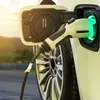Why India needs to switch quickly to electric vehicles for greener future
We have to make people understand, EVs hold the key to permanent solutions of a better, cleaner India for the sustainability of its populace.

At a crucial juncture when all countries are engaged in freeing Mother Earth from the claws of carbon emissions, or CO2, India can play a lead role in it by switching over the EV mobility to ensure a greener and cleaner ecology.
By promoting the EV sector’s organic growth and enhancing its popularity among the people with governmental media programmes, a substantial cut in fossil-fuel run vehicular mobility can be made possible.
During the pendency of COVID-19, we watched how the environment improved due to lesser emissions from petrol and diesel-run vehicles and industries in India. In many cities, the smog completely vanished.
In many parts of India, people could even view distant mountains that had been impossible for them to see for decades due to the atmospheric hindrances created by the emission of the smoke from fossil-fuel run vehicles.
By switching over to clean-green energy run EVs, we can make skies crystal clear, allowing us to look at distant places. We have to make people understand, EVs hold the key to permanent solutions of a better, cleaner India for the sustainability of its populace.
Adoption of EVs and green technology in India
For India’s sustainable green planet goal, a robust push in cleaner mobility is essential. Only EVs can do this.
The argument behind is that the fossil-fuel vehicles contribute 60 percent of PMs (particulate matter-related atmospheric pollution), and over 20 percent of CO2.
The EVs, on the other hand, is smoke-free. They do not choke urban India with hydrocarbon pollution, something that the UNICEF aptly termed as “danger in the air.”
Petrol and diesel vehicles are hugely inefficient
The petrol and diesel-run vehicles are hugely inefficient as nearly 70 percent of the precious fuel simply is wasted. It can neither be recycled, recovered, or reused. We know it takes millions of years to create natural fossil fuel, unlike the batteries that can be made as and when you need.
On the other hand, the EVs are rechargeable, involving zero-wastage of energy. They do not have even a single iota of harmful effects on human health and ecology.
The heavy petrol and diesel trucks alone cause over 30 percent of vehicular particulate pollution. As far as urban India as a whole is concerned, all fossil fuel-vehicles are responsible for nearly 29 percent of pollution.
Biofuels hold the key
With the erratic prices of petrol and diesel, it’s the vehicle owners whose pockets have to bear the burden. We all are witnessing how the prices of fossil fuels are rising. And it is a recurring cost-factor.
On the other hand, you buy a single battery for EVs that lasts for a much longer time. Besides, it is a one-time expenditure. It is not that you are re-filling your vehicles every day or several times a day, depending on your movements.
To curb and reduce the use of petrol, diesel vehicles, it is time that customers switch over to e-mobility at a faster pace to limit the use of fossil fuel which will, ultimately, run out in future. In that case, the biofuels and batteries would be the only solution to allow mobility to happen.
By 2025, India aims to become an EV manufacturing hub
As per the announcement by the Union Minister for Road Transport and Highways Nitin Gadkari, the electric vehicles and biofuels have an excellent chance for mass adoption. The EV industry’s hope for the promotion at the governmental level has gone up.
Gadkari said India is likely to become EV manufacturing Hub By 2025. Since he also said the Government was also extending all the support it possibly can to the EV industry, it may catalyse the auto sector’s growth.
Gadkari also announced that the government is currently working on what will be its first electric highway that will be part of the soon-to-be-ready Delhi-Mumbai Green Corridor.
Edited by Kanishk Singh
(Disclaimer: The views and opinions expressed in this article are those of the author and do not necessarily reflect the views of YourStory.)









